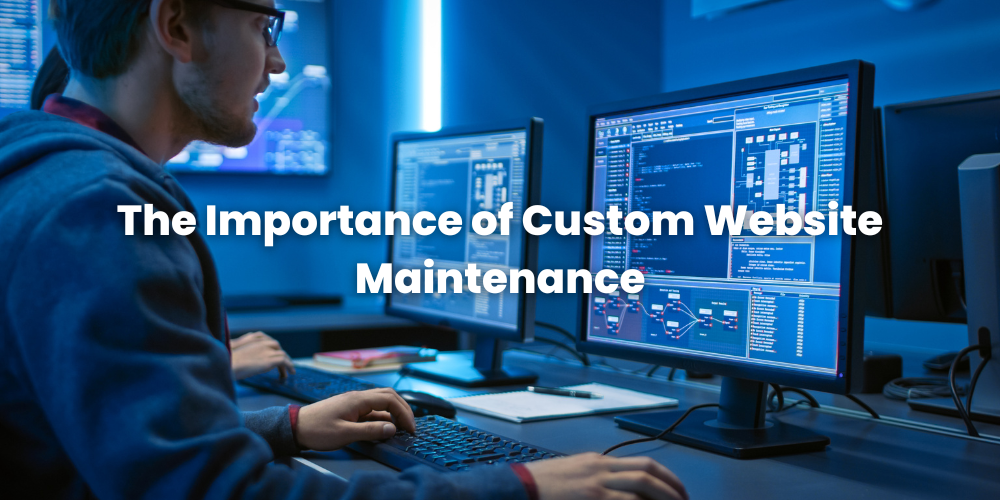In this digital era, your website serves as the initial point of contact, for potential customers. Therefore, maintaining your website goes beyond necessity; it offers an edge. Personalised website maintenance guarantees that your site stays operational, secure, and optimized enhancing user experience and aligning with your business objectives which ultimately will help you get more customers and hence increase your revenue.
The Importance of Maintaining Your Website
Website upkeep entails inspections and updates to ensure operation. It encompasses activities from software updates to speed optimization all aimed at enhancing performance and security. Here’s why it matters;
1. User Engagement; An upto date website delivers an user experience that keeps visitors engaged, increase unique visits and minimizes bounce rates.
2. Security; Routine maintenance shields your website against cyber threats and vulnerabilities, In security we have to ensure every script, plugin, packages are upto date.
3. SEO Benefits; Search engines prioritise updated keywords, contents, blogs which helps websites boosting your visibility and ranking.
4. Performance Enhancement; Ensuring optimal website performance in terms of speed and uptime elevates not only user satisfaction and helps increasing business goals but these performance has been identified by various website which shows your website is performing best.
Common Tasks in Website Maintenance
Website upkeep includes a range of tasks. Here are some typical ones.
1. Regular Backups and Restoration Processes
2. Resolving Patches for Websites
3. Monitoring Website Performance Metrics and Uptime, Keeping CPU utilization low
4. Speed Optimization, for faster Loading Times
5. Ensuring the Security of Your Website and Securing Against Online Threats
6. Resolving Broken Links and Errors, and make sure the website is working smoothly without any bugs
7. Applying SEO Best Practices for Maintaining Your Website Ranking
Lets take a look, at each of these aspects.
Regular Backup and Restore Procedures
Regular backups are essential to safeguard your website’s data. Here’s why they matter:
- Data Protection:Backups ensure you don’t lose critical data in case of a cyber-attack or technical failure or human error.
- Recovery:In the event of data loss by any means, backups allow you to restore your website immediately, minimizing downtime.
- Peace of Mind:Regular backups give you confidence that your data is safe, allowing you to focus on your business and reach your goals.
Implementing automated backup solutions and regularly testing your restore procedures will ensure that your data remains secure and recoverable.
Updating and Patching Website Software
Software updates and patches are critical for maintaining website security and performance. Here’s why you should stay updated:
- Security Fixes:Updates often include patches for security vulnerabilities, protecting your site from potential threats.
- New Features:Software updates can introduce new features and improvements, enhancing functionality and user experience.
- Bug Fixes:Regular updates address bugs and issues, ensuring smooth operation.
Make sure to regularly update your content management system (CMS), plugins, themes, and any other software components to keep your website secure and efficient.
Monitoring Website Performance and Uptime
Monitoring your website’s performance and uptime is essential for delivering a reliable user experience. Here’s what it involves:
- Uptime Monitoring: Ensure your website is always accessible by tracking uptime and addressing any downtime issues promptly.
- Performance Metrics: Monitor metrics such as page load times, server response times, and user interactions to identify areas for improvement.
- Error Tracking: Keep an eye on website errors and fix them quickly to maintain a smooth user experience.
Using performance monitoring tools and services can help you stay on top of your website’s health and address issues proactively.




